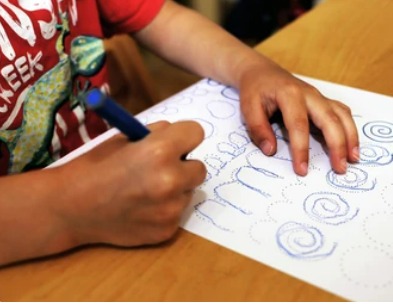The importance of early intervention is sometimes unparalleled, especially with regard to helping children achieve specific and crucial milestones that other children are achieving at the same age. What is early intervention? Right from birth itself, a child will keep growing and developing his or her skills and personality. Children develop differently from one another but most of them achieve certain landmarks at the same age threshold. When children do not cross these milestones and indicate delayed progress or development, parents often turn anxious.
However, you should not fret unnecessarily. Instead, check for signs your child may need early intervention instead. When does a child need early intervention? Or positive behavioural support? When he or she is not achieving these milestones, for example, saying his or her first word, learning to crawl or walk and so on. When he or she indicates delayed growth and development, early intervention solutions are required for assistance. These make use of therapies and other solutions for boosting the abilities of children to interact with people and their surrounding environment. Such experiences and daily interaction are crucial for optimal development as well. These solutions are usually for children less than 3-4 years old with suspected developmental issues or delays (language, physical or cognitive), special needs or disabilities.
When does a child need early intervention?
While the benefits of early intervention are quite clear for parents, many of them stay confused with regard to availing of these services at the right time. Some indications include children not wanting to be held, extreme sensitiveness at a sensory level, and issues with feeding, movement or mobility fears, not achieving milestones for swallowing, chewing and biting certain food items and so on. Once you notice that your little one is not progressing at the same rate as his or her siblings and peers, then consulting your physician about early intervention is definitely recommended.
Consult your pediatrician if your child is not crawling and walking by 10 and 18 months respectively or not pointing/waving/imitating various gestures by the age of 12 months. Check whether he or she can form boards, nesting cups and ring stacks by 18 months and understand/say 50 words at least by 24 months.
Early intervention types
Early intervention commences with a team-based evaluation for analyzing and identifying the requirements of a child. Research reports clearly indicate that early intervention based services can help immensely in combating development-linked delays. Speech, physical, and occupational therapy services may be needed for the promotion of speech, motor skills, and language development. Such early intervention services may cover social work, counselling, psychological services, therapies (physical, occupational and speech), vision services and audiology.
The services vary in their nature and scope. Professionals often come together for enhancing overall stability, strength and coordination while backing the sensory requirements and goals of children. They help children thrive and flourish while at preschool, and also in other zones like playgrounds and while interacting with peers. Occupational therapy helps in the promotion of visual, cognitive, sensory and motor skills for manipulation and grasping of objects. Occupational therapy helps in concept development including shape and size-based discrimination and also hand-eye coordination for using spoons/forks, sensory skills for scribbling and so on.
Speech and language therapy is also known as SLP or speech-language pathology. This helps in the promotion of expressive and receptive communication along with oral motor skills for swallowing and speaking. Speech therapy may also include the usage of pictures, speech, electronic devices, and gestures. Physical therapy helps in the promotion of stability while standing or sitting and mobility for walking and crawling. Physical therapy also comes in handy while catering to the needs of children and also recommending the usage of adaptive tools like wheelchairs and walkers if required in some cases.
There is early childhood special education where educators offer age-suitable learning activities and ecosystems for boosting social and cognitive abilities. Some of them include popping bubbles and even finger-playing to songs. Then there are social work solutions where children are closely evaluated for their emotional and social requirements. The family is also assessed and thereafter, the team offers training to the parents or counselling services.
to get your child the support he needs, contact Briiliant Care Services, an NDIS disability support provider.





